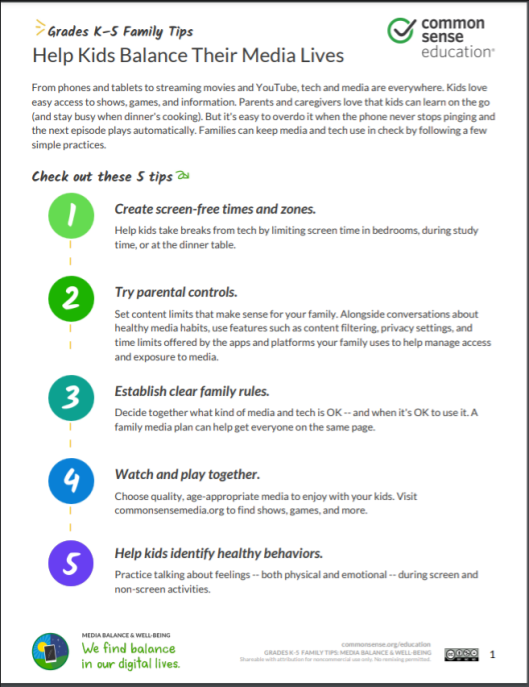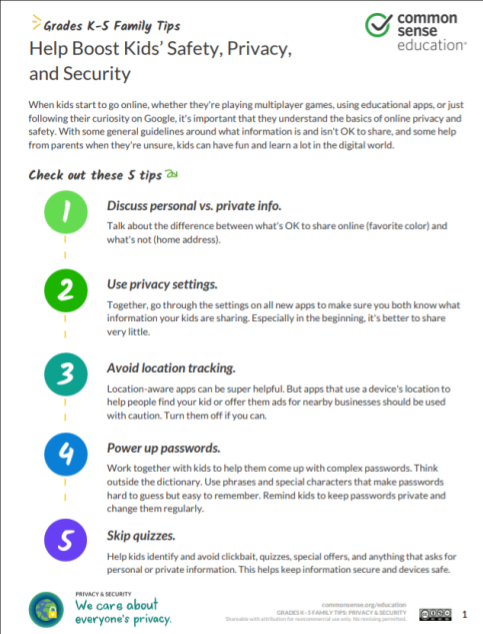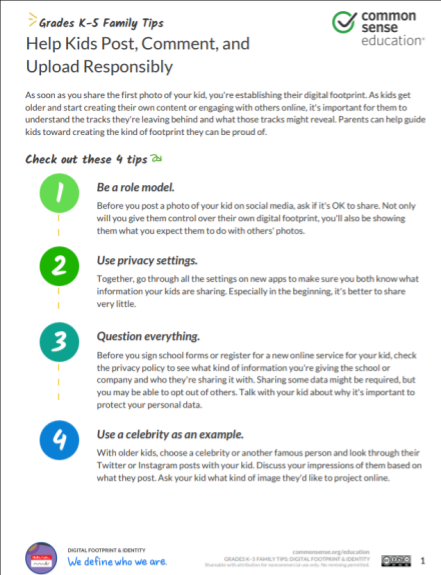Digital Citizenship Week 2022
Digital Citizenship Week: October 17-21, 2022
What is Digital Citizenship Week?
According to Common Sense Media, "kids today may seem like experts at using technology, but the digital world requires all kinds of skills and habits that kids don’t just pick up as they go. Digital citizenship helps them learn those skills. The Common Sense lessons help kids in grades K–2 develop healthy media habits and learn how to be safe online. Lessons for kids in grades 3–5 continue to focus on screen time and online safety. Older kids also learn about how to recognize cyberbullying, what is and isn’t OK to share online, and how to find credible news and information."
What can families do?
Common Sense Education provides resources to help you support your kid’s learning. As we teach these lessons in class, we’ll be sending home tip sheets, videos, and activities for you to do with your kids. You can visit the Common Sense website at www.commonsensemedia.org for more. Please feel free to contact us if you have any questions. Working together with Common Sense Education, we can prepare today’s kids to think critically and use tech in positive, creative, and powerful ways.
See the Family Tip sheets below for some specific ways you can help your students become good digital citizens



